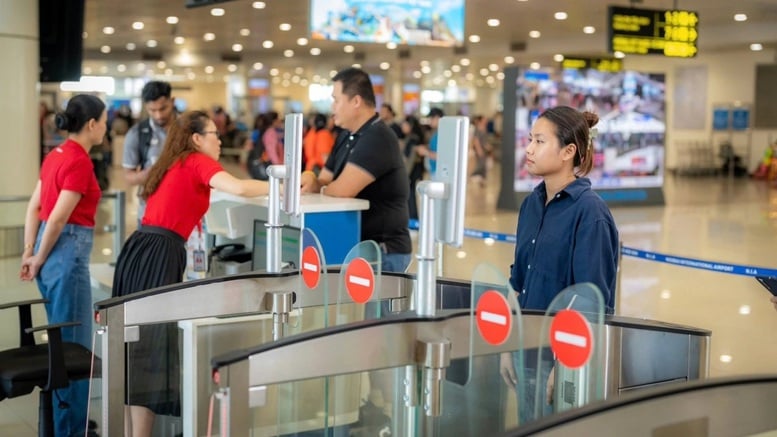
From September 15, at domestic airports nationwide, passengers can check in for flights using only VNeID and biometrics - Photo: VOV
Prime Minister Pham Minh Chinh has just signed Directive No. 24/CT-TTg dated September 13, 2025 on promoting the deployment of technological solutions to serve people and businesses associated with population data, identification and electronic authentication. Accordingly, the Government sets a target that by October 2025, 100% of domestic airports will complete the implementation of passenger check-in procedures using only VNeID. This is not only a technical change, but also an important step in the journey of national digital transformation - a journey in which each citizen is the center.
Remember number 24, jokingly and intimately, to "read the password" when going to administrative agencies to do procedures.
Because in Directive 24, the Prime Minister directed very firmly: "Citizens are not required to submit or present originals or copies of documents and papers that have been integrated into VNeID when citizens have presented corresponding information from VNeID".
Simply put, if the information is already on the app, don't make people carry "pieces of paper" in their pockets. This is a strong affirmation that technology must go hand in hand with convenience, that digital transformation cannot stop at slogans, but must truly reduce invisible barriers.
In fact, there is still the situation of "talking about integration, but still being asked for papers".
Directive 24 is an official commitment, setting out a requirement for transparency: public agencies can no longer "force them to be sure", but must implement the spirit of one-stop-shop-one-data. This is not just a matter of procedure, but a story of trust: the people's trust in the State, the administrative apparatus' trust in technological capacity, and the trust that the country can operate a more modern and streamlined administration.
From a social perspective, this step is of great significance. People, especially vulnerable groups such as the elderly, pregnant women, or people in remote areas - who often have difficulty carrying all kinds of documents - now have a reduced burden. With just one application on the phone, all basic information is integrated and authenticated. This is also the way for the Government to send a message: accompanying the people, removing difficulties from the smallest things.
Of course, we cannot expect immediately: The Directive will mean that tomorrow the situation of being asked for papers will end. Old administrative habits are difficult to change overnight. But the valuable point is that the Government has "spoken straight", cleared the way, and requested public accountability. That means: If any official still asks for papers, it is no longer a "habit", but a violation of the Directive. And people have every right to complain. It is a reverse monitoring mechanism, so that the people themselves can participate in protecting their own rights.
Directive 24 also sets out parallel requirements: Ministries, sectors and localities must review processes, revise documents, and upgrade infrastructure. After all, technology is just a tool, people are the key. Without training and sanctions, biometric scanners or VNeID applications can easily be "shelved". The solution here is not just to buy more equipment, but to innovate the way of working, creating a new public service culture: Considering people as the objects of service, considering people's convenience as the evaluation criteria.
In the aviation sector, applying biometrics is an inevitable step. Major international airports have long deployed it, and Vietnam cannot be slow. The synchronous deployment in October shows the determination of the Government and Prime Minister to "not say no, not say difficult, not say yes but do not do". But to maintain it, airlines and port authorities must join in: from training staff to ensuring stable operating infrastructure and absolute data security. No one wants to miss a flight just because the system is "hanging".
An equally important factor is communication to the people. New things always take time to get used to and adapt to. People will ask: "What if the app fails?", "What if I lose my phone?", "What if the network is unstable?". These questions are not trivial, but are real-life tests. To be successful, authorities must explain clearly, provide backup plans, so that people can use them with peace of mind.
In the long term, Directive 24 will also act as a "boost" for online public services. When data is integrated, when VNeID becomes the only "digital identity", then applying for a birth certificate, paying taxes, getting medical treatment, etc. will also be easier. That is the ultimate goal: building a digital administration, where people only need a single identification to go everywhere and do all procedures.
And don’t forget, for the law to keep up, the legal framework must be improved. Directive 24 has called for amendments to relevant decrees and circulars. This is the right move: If the law is not removed from the root, the “paper erasure” will still be stuck.
Directive 24 is not just an administrative document. It is a reminder that digital transformation cannot be just about technology, but about changing the way the State serves the people. From small things like flight documents, driving licenses, to larger procedures, all must aim for convenience, transparency, and efficiency.
Citizens, with their rights and responsibilities, must also accompany: Proactively install and use VNeID, and report when faced with difficulties. Because digital transformation is not just the Government's job, but a collective journey, where each citizen is a "link".
A swipe of an app, instead of a paper submission, seems small, but it is from these small things that trust in a modern administration will be built. And when trust is full, the journey of "erasing paper" will be truly successful.
Dao Tuan
Source: https://baochinhphu.vn/chi-thi-24-va-hanh-trinh-tien-toi-xoa-giay-thanh-cong-10225091413182734.htm











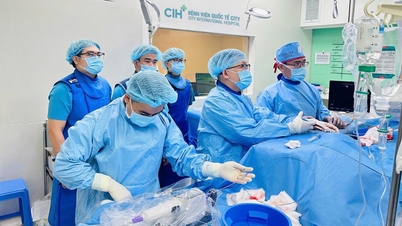

















![[Photo] Off-road racing: Adventure sport, attractive tourism product](https://vphoto.vietnam.vn/thumb/1200x675/vietnam/resource/IMAGE/2025/9/14/45123bd29c884b64934da038d947d344)










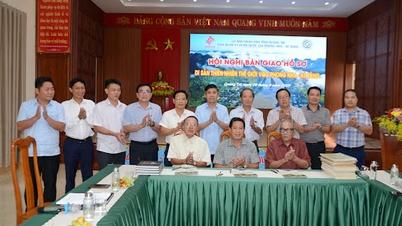










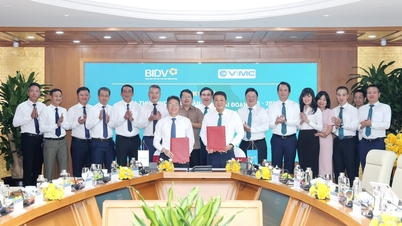





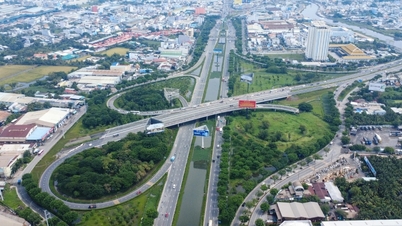














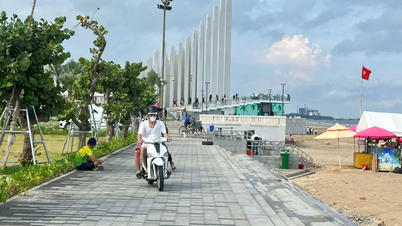






















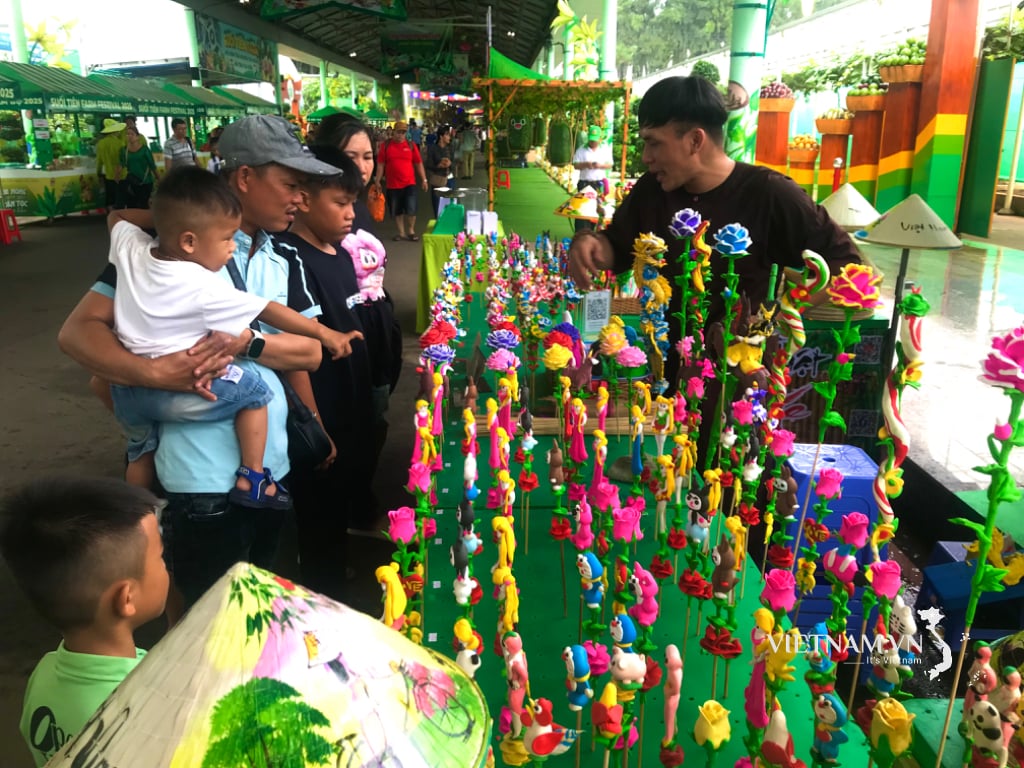



Comment (0)